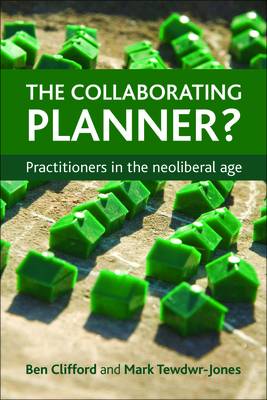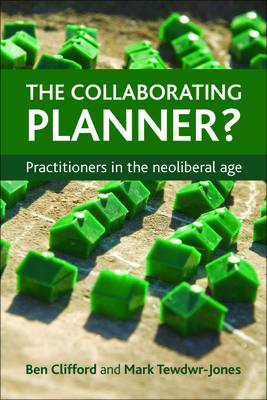
- Afhalen na 1 uur in een winkel met voorraad
- In januari gratis thuislevering in België
- Ruim aanbod met 7 miljoen producten
- Afhalen na 1 uur in een winkel met voorraad
- In januari gratis thuislevering in België
- Ruim aanbod met 7 miljoen producten
The Collaborating Planner?
Practitioners in the Neoliberal Age
Ben Clifford, Mark Tewdwr-JonesOmschrijving
Since the turn of the 21st century, there has been a greater pace of reform to planning in Britain than at any other time. As a public sector activity, planning has also been impacted heavily by the wider changes in the way we are governed. Yet whilst such reform has been extensively commented upon within academia, few have empirically explored how these changes are manifesting themselves in planning practice.
This new book aims to understand how both specific planning and broader public sector reforms have been experienced and understood by chartered town planners working in local authorities across Great Britain.
After setting out the reform context, successive chapters then map responses across the profession to the implementation of spatial planning, to targets, to public participation and to the idea of a 'customer-focused' planning, and to attempts to change the culture of the planning. Each chapter outlines the reaction by the profession to reforms promoted by successive central and devolved governments over the last decade, before considering the broader issues of what this tells us about how modernisation is rolled-out by frontline public servants.
This accessible book fills a gap in the market and makes ideal reading for students and researchers interested in the UK planning system.
Specificaties
Betrokkenen
- Auteur(s):
- Uitgeverij:
Inhoud
- Aantal bladzijden:
- 304
- Taal:
- Engels
Eigenschappen
- Productcode (EAN):
- 9781447305101
- Verschijningsdatum:
- 1/08/2014
- Uitvoering:
- Paperback
- Formaat:
- Trade paperback (VS)
- Afmetingen:
- 155 mm x 231 mm
- Gewicht:
- 453 g

Alleen bij Standaard Boekhandel
Beoordelingen
We publiceren alleen reviews die voldoen aan de voorwaarden voor reviews. Bekijk onze voorwaarden voor reviews.









